The Myth Of Self-cleaning Ovens And Safety Concerns
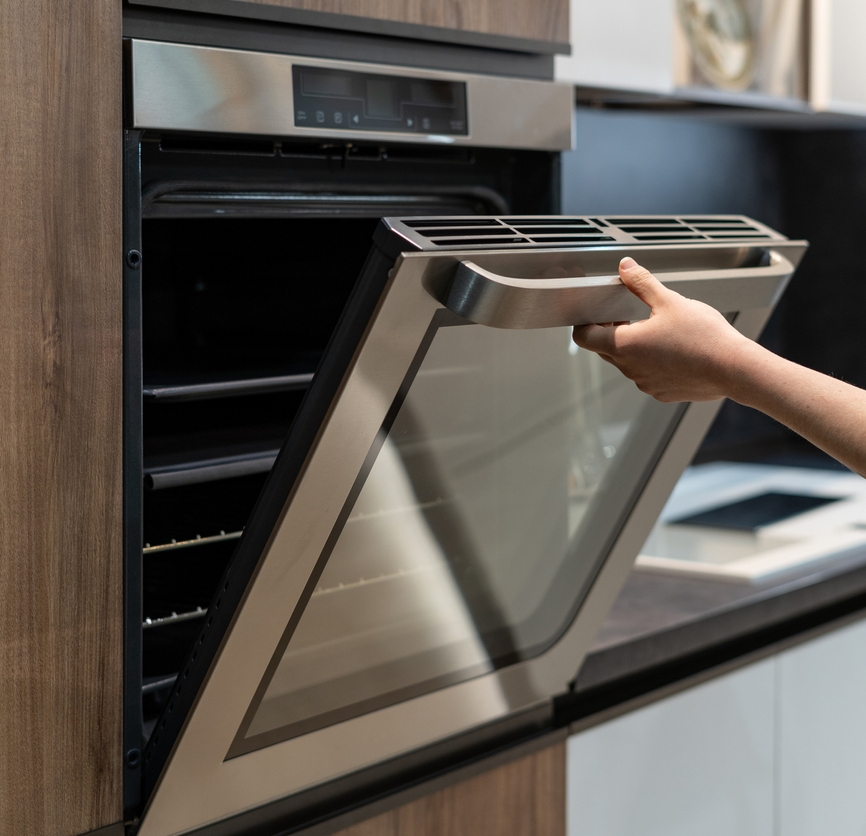
Self-cleaning ovens have been surrounded by various myths and safety concerns that need to be debunked. One common myth is that the self-cleaning function can cause a fire in the oven. However, self-cleaning ovens are designed with safety features such as temperature sensors and locks to prevent any accidents. Another myth suggests that the self-cleaning function emits harmful fumes that can be dangerous when inhaled. In reality, while the cleaning process does produce some odor, it is not harmful if used correctly and in a well-ventilated area. It is important to separate fact from fiction and understand the truth about self-cleaning ovens to ensure safe and informed use.
The Concept Of Self-cleaning Ovens
Self-cleaning ovens are designed with a unique feature that allows them to clean themselves without manual scrubbing or cleaning agents. This innovative concept involves a high-temperature cleaning process that burns off food residue and spills inside the oven. The oven’s self-cleaning function locks the door and raises the temperature to an extremely high level, typically around 900 degrees Fahrenheit (482 degrees Celsius). During this process, any leftover debris is turned to ash, making it easy to wipe away once the oven has cooled down. This self-cleaning feature offers convenience and saves time for users by eliminating the need for manual cleaning.
Common Myths About Self-cleaning Ovens
Self-cleaning ovens have been surrounded by several common myths, which have caused concern among users. One popular myth suggests that the self-cleaning process can release toxic fumes that are harmful to inhale. However, self-cleaning ovens are designed with safety features to prevent the release of harmful fumes. Another myth claims that the high temperatures during the self-cleaning process can cause the oven to explode. This is not true as self-cleaning ovens are built to withstand these high temperatures without any risk of explosion. It is important to debunk these myths and understand the facts about self-cleaning ovens for informed decision-making.
How Do Self-cleaning Ovens Work?
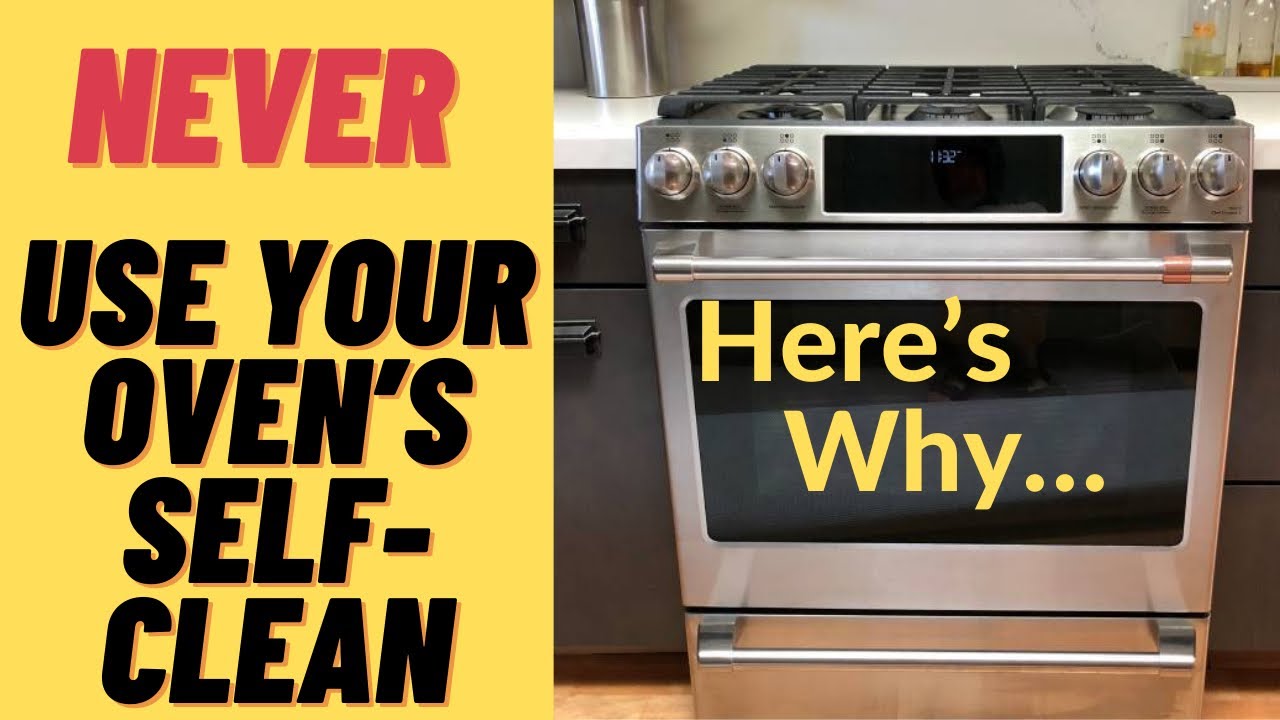
Self-cleaning ovens operate through a process known as pyrolysis. During the self-cleaning cycle, the oven is heated to extremely high temperatures, typically ranging from 800 to 900 degrees Fahrenheit. At these temperatures, any food residue or grease inside the oven is turned into ash. The high heat also helps to kill bacteria and eliminate any odors. The duration of the self-cleaning cycle can vary, but it usually lasts for a few hours. Once the cycle is complete, the oven cools down, and the ashes can be easily wiped away. This process eliminates the need for harsh chemicals or manual scrubbing.
Understanding The Self-cleaning Process
During the self-cleaning process, self-cleaning ovens are heated to temperatures as high as 800 to 900 degrees Fahrenheit. This extreme heat turns any food residue or grease inside the oven into ash, which can be easily wiped away once the oven cools down. The high temperature also helps to kill bacteria and eliminate any odors. The duration of the self-cleaning cycle varies, but it typically lasts for a few hours. This process eliminates the need for harsh chemicals or manual scrubbing, making it a convenient and efficient way to clean your oven.
Temperature Levels And Safety Precautions
During the self-cleaning process, self-cleaning ovens reach extremely high temperatures, typically ranging from 800 to 900 degrees Fahrenheit. These high temperatures can present safety concerns if not handled properly. It is important to follow safety precautions when using the self-cleaning function. This includes ensuring that the oven is properly ventilated, as the high temperatures can produce smoke and odors. Additionally, it is essential to keep children and pets away from the oven during the cleaning cycle to prevent any accidental burns. Safety should always be a priority when using self-cleaning ovens.
Chemicals Used In Self-cleaning Ovens
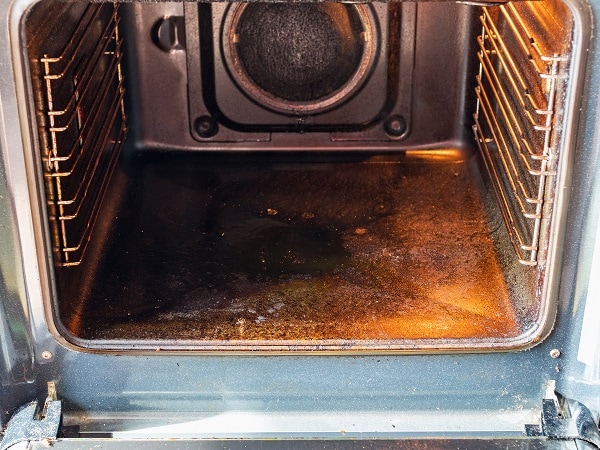
Self-cleaning ovens utilize chemicals as part of the cleaning process. The main chemical involved is a substance known as pyrolytic enamel, which is applied as a coating to the oven’s interior surface. During the self-cleaning cycle, this enamel is heated to extremely high temperatures, causing any food residue or grease to be burned off. The resulting ash can then be easily wiped away once the oven has cooled down. It is important to note that the use of chemicals in self-cleaning ovens should be done with caution, and proper ventilation should be ensured to prevent any potential health risks.
Overview Of The Chemicals Involved
During the self-cleaning process, self-cleaning ovens use a chemical called pyrolytic enamel, which is applied as a coating on the interior surface of the oven. This enamel is designed to withstand high temperatures and is responsible for burning off any food residue or grease during the cleaning cycle. The pyrolytic enamel undergoes a chemical reaction when exposed to extreme heat, turning the food residues into ash that can be easily wiped away. It is important to note that the use of chemicals in self-cleaning ovens should be done with caution, and proper ventilation should be ensured to prevent any potential health risks.
Potential Risks And Safety Measures
There are potential risks associated with the use of self-cleaning ovens that users should be aware of. The high temperatures reached during the self-cleaning process can cause the release of fumes and odors, which may irritate the respiratory system or trigger allergies. It is important to ensure proper ventilation in the kitchen while using this function. Additionally, the high heat can also pose a risk of burns if caution is not exercised when handling the oven during and immediately after the cleaning cycle. It is crucial to follow the manufacturer’s instructions and safety guidelines to minimize these risks and ensure a safe cleaning process.
Health Impacts Of Self-cleaning Ovens
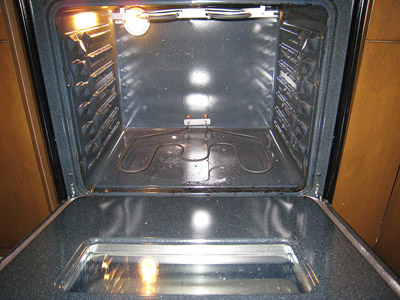
Self-cleaning ovens can have potential health impacts due to the release of fumes and odors during the cleaning process. The high temperatures reached can cause respiratory irritation and trigger allergies in some individuals. It is important to ensure proper ventilation in the kitchen while using this function to minimize exposure to these fumes. Additionally, the high heat can also pose a risk of burns if caution is not exercised when handling the oven. Following safety guidelines and using preventive measures can help mitigate these health risks and ensure a safe cleaning process.
Possible Health Concerns Related To Self-cleaning Ovens
The high temperatures reached during the self-cleaning process can release fumes and odors that may cause respiratory irritation and trigger allergies in some individuals. These fumes contain volatile organic compounds (VOCs), which can be harmful if inhaled in large quantities. To minimize the risk, it is important to ensure proper ventilation in the kitchen while using the self-cleaning function. Additionally, the high heat can pose a risk of burns if caution is not exercised when handling the oven. Following safety guidelines and using preventive measures can help mitigate these health risks and ensure a safe cleaning process.
Preventive Measures For A Safe Cleaning Process
When using a self-cleaning oven, there are several preventive measures that can be taken to ensure a safe cleaning process. Firstly, it is essential to read the manufacturer’s instructions and follow them carefully. This includes setting the appropriate cleaning cycle and duration, as well as ensuring proper ventilation in the kitchen. It is also recommended to remove any food residues or spills before starting the self-cleaning process to minimize the release of fumes. Additionally, wearing protective gloves and using caution when handling the oven during and after the cleaning cycle is important to avoid burns. By following these preventive measures, users can ensure a safe and effective cleaning process.
Debunking The Myth: Can Self-cleaning Ovens Kill You?
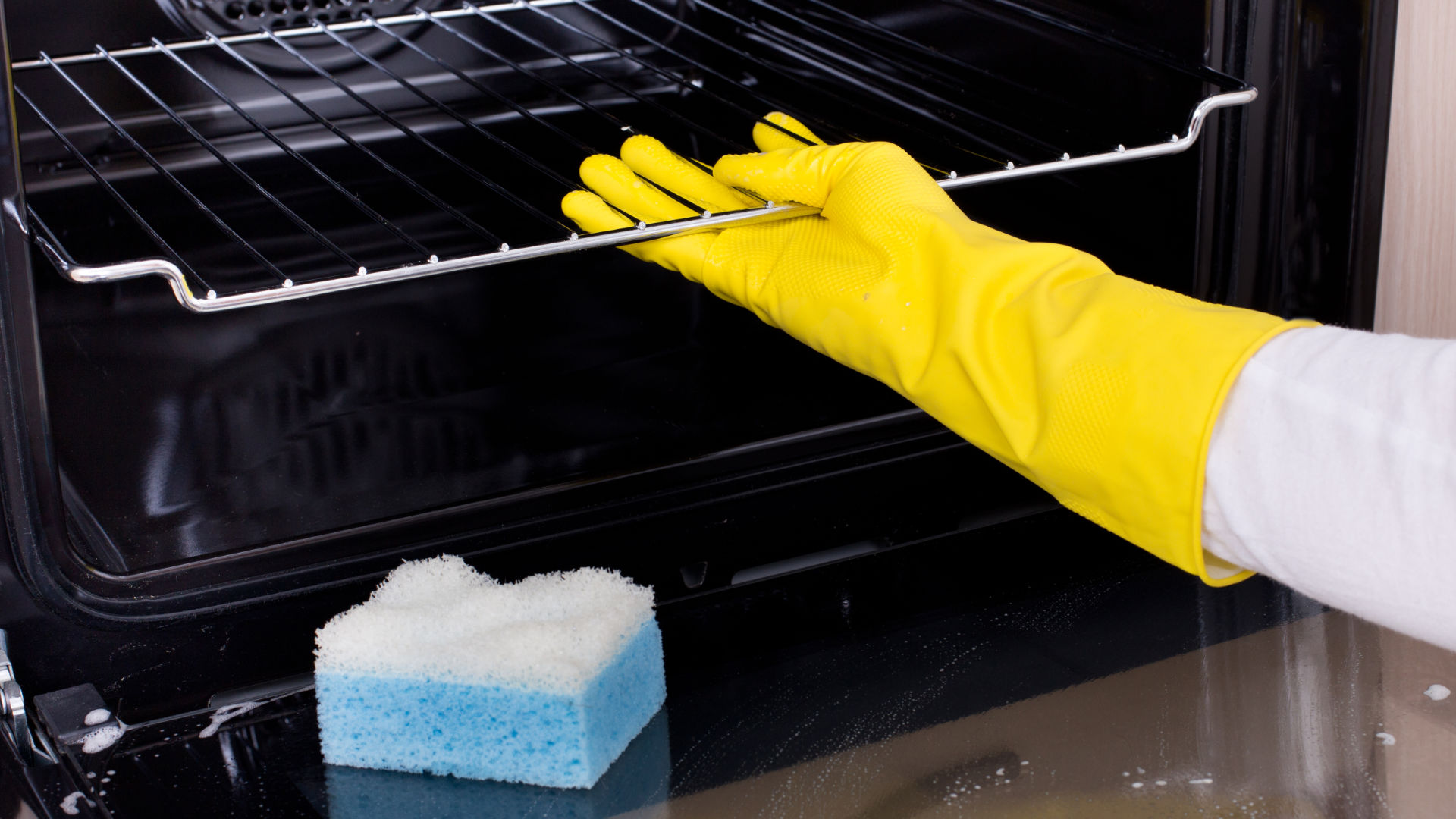
Debunking the Myth: Can Self-Cleaning Ovens Kill You? Despite the concerns and misconceptions surrounding self-cleaning ovens, scientific evidence and expert opinions indicate that using a self-cleaning oven does not pose a significant health risk. The high temperatures reached during the cleaning process effectively burn off food residues, eliminating the need for harsh chemicals. While the self-cleaning process may produce some smoke and odor, these are typically non-toxic. By following the manufacturer’s instructions, ensuring proper ventilation, and taking simple precautions, such as removing food spills beforehand, users can safely enjoy the convenience of self-cleaning ovens.
Examining The Truth Behind The Myth
Concerns about self-cleaning ovens and their potential dangers have led to widespread myths and misconceptions. However, a closer examination reveals that these fears are largely unfounded. Scientific evidence and expert opinions consistently confirm that using a self-cleaning oven does not pose a significant health risk. The high temperatures reached during the cleaning process effectively burn off food residues, eliminating the need for harsh chemicals. Any smoke or odor produced during self-cleaning is typically non-toxic and dissipates quickly with proper ventilation. By following manufacturer instructions and taking simple precautions, such as removing food spills beforehand, users can confidently enjoy the convenience of self-cleaning ovens without worrying about harm to their health.
Scientific Evidence And Expert Opinions
Scientific evidence and expert opinions consistently debunk the myths surrounding self-cleaning ovens. Studies have shown that the high temperatures reached during the cleaning process effectively eliminate food residues without emitting harmful fumes. Experts, including oven manufacturers and professional cleaning services, confirm the safety of self-cleaning ovens when used properly. The American Lung Association also states that the smoke and odor produced during self-cleaning are typically non-toxic and pose no significant health risk if proper ventilation is maintained. By relying on factual data and expert advice, consumers can confidently use self-cleaning ovens without fear of harm.
Conclusion
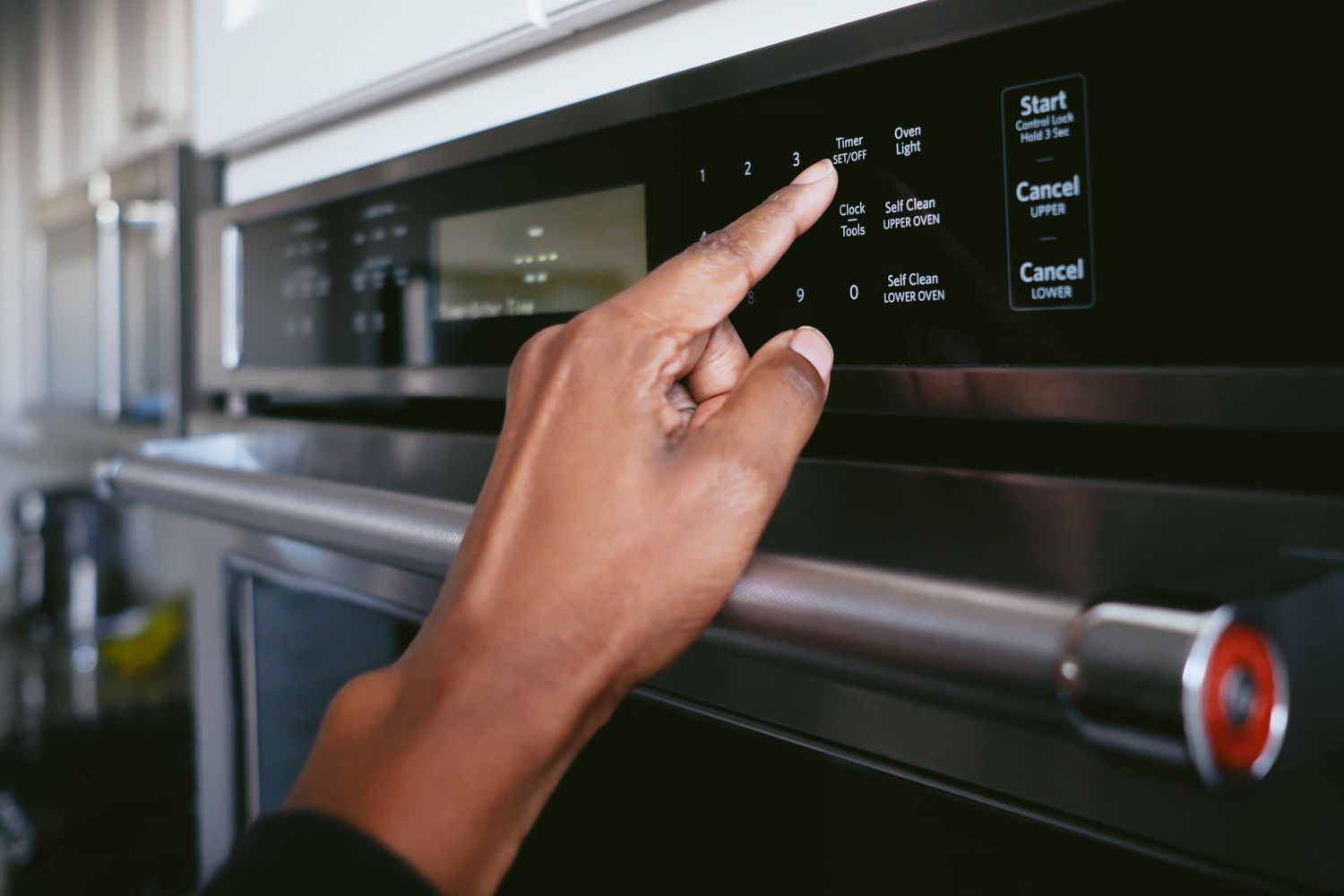
In conclusion, the myth surrounding self-cleaning ovens and their potential to harm users has been debunked by scientific evidence and expert opinions. The high temperatures reached during the cleaning process effectively eliminate food residues without emitting harmful fumes. Proper ventilation and following safety precautions ensure a safe cleaning process. It is important to spread accurate information to dispel fears and allow consumers to confidently use self-cleaning ovens. With knowledge and understanding, users can enjoy the convenience and efficiency of self-cleaning ovens without any health concerns.
Summary Of Key Points
In summary, self-cleaning ovens have been the subject of myths and safety concerns, but scientific evidence and expert opinions debunk these notions. The self-cleaning process involves high temperatures that effectively eliminate food residues without emitting harmful fumes. Safety precautions such as proper ventilation and following manufacturer’s guidelines ensure a safe cleaning process. While chemicals are used in self-cleaning ovens, they are not harmful when used appropriately. It is important to debunk these myths to allow consumers to confidently utilize the convenience and efficiency of self-cleaning ovens without health concerns.
Safety Tips For Using Self-cleaning Ovens
To ensure a safe cleaning process when using self-cleaning ovens, it is important to follow these safety tips:
- Read the manufacturer’s instructions: Familiarize yourself with the specific guidelines provided by the oven manufacturer. This will help you understand the proper usage and safety precautions to take.
- Allow for proper ventilation: Open windows or use exhaust fans to provide adequate ventilation during the self-cleaning process. This helps to prevent the buildup of fumes and allows for better air circulation.
- Remove any flammable materials: Clear the oven of any flammable items such as oven mitts, cooking utensils, or food packaging before starting the self-cleaning cycle. This reduces the risk of fire hazards.
- Keep a close eye on the oven: While the self-cleaning cycle is in progress, stay vigilant and actively monitor the oven. Avoid leaving the area unattended and be prepared to respond promptly to any issues that may arise.
- Wait for the oven to cool down: After the self-cleaning cycle is complete, give the oven ample time to cool down before opening the door. This prevents the risk of burns from hot surfaces.
By following these safety tips, you can confidently and safely utilize the self-cleaning feature of your oven without any unnecessary risks.
FAQ About Can Self-cleaning Oven Kill You? Debunking The Oven Myth
Q: Can a self-cleaning oven kill you if you use it while at home?
A: No, a self-cleaning oven is designed with safety features to prevent harm to users. It uses high heat to burn off food residue, but it is not a danger to people when used properly.
Q: Is it safe to stay at home while a self-cleaning oven is running?
A: It is safe to stay at home while the self-cleaning cycle is running. However, it is recommended to open windows for ventilation as the process may produce smoke or odors.
Q: Can the fumes from a self-cleaning oven be harmful?
A: The fumes produced during the self-cleaning cycle can be unpleasant due to the burning off of food residues, but they are not typically harmful to health unless someone has respiratory sensitivities. Adequate ventilation is recommended.
Q: Are there any precautions to take when using a self-cleaning oven?
A: It is important to remove any pets from the area as the high heat and fumes can be distressing to animals. Additionally, ensure the oven is well-ventilated by opening windows or using an exhaust fan.
Q: Can a self-cleaning oven catch fire?
A: While there is a possibility of a fire starting if there is excessive food debris or grease inside the oven, modern self-cleaning ovens are designed with safety features to reduce this risk. It is important to follow the manufacturer’s instructions for safe operation.
Q: How often should a self-cleaning oven be cleaned?
A: Self-cleaning ovens typically only need to go through a self-clean cycle a few times a year, depending on how frequently they are used. Regular wipe-downs after spills and crumbs can help maintain cleanliness between self-cleanings.

Lenoir’s Bistro & Bakery, a charming and chic cafe, has been delighting patrons with an array of delectable delights since its inception. From mouthwatering breakfast bites to succulent burgers and sandwiches and a tempting selection of pasta, sides, and desserts, Lenoir’s Bistro & Bakery is the go-to destination for food enthusiasts seeking a delightful dining experience. Founded by a passionate culinary team with a vision to create a welcoming and stylish eatery, Lenoir’s Bistro & Bakery has seamlessly blended the art of baking with the craft of preparing savory dishes. The result is a menu that caters to diverse tastes and preferences, offering something to satisfy every craving.